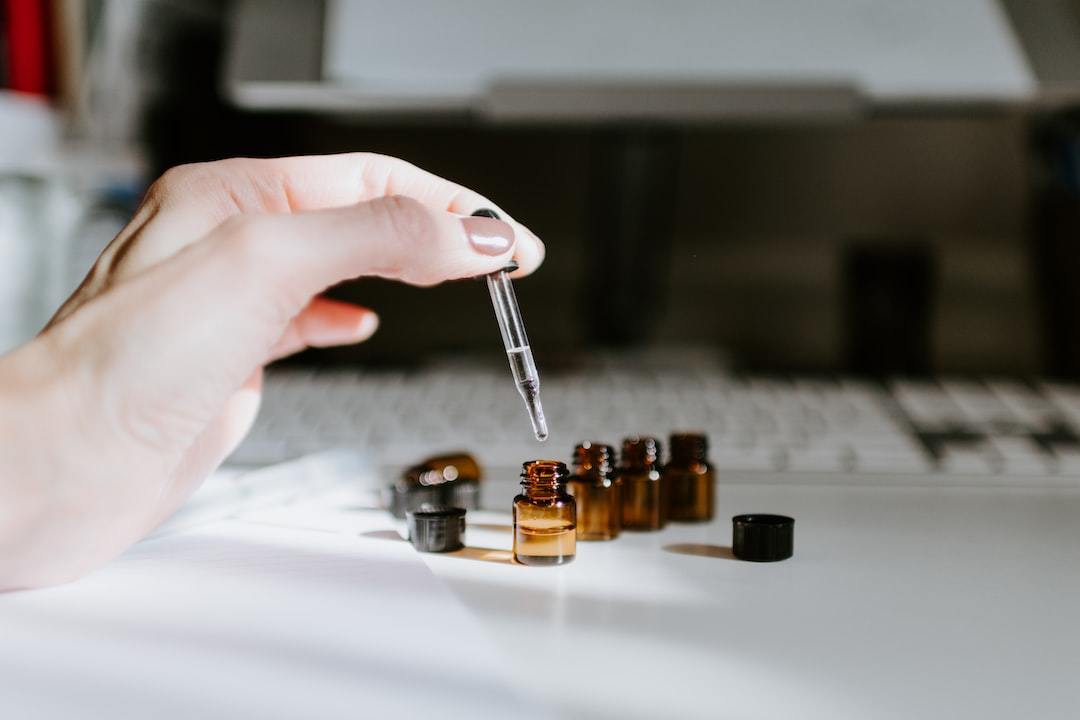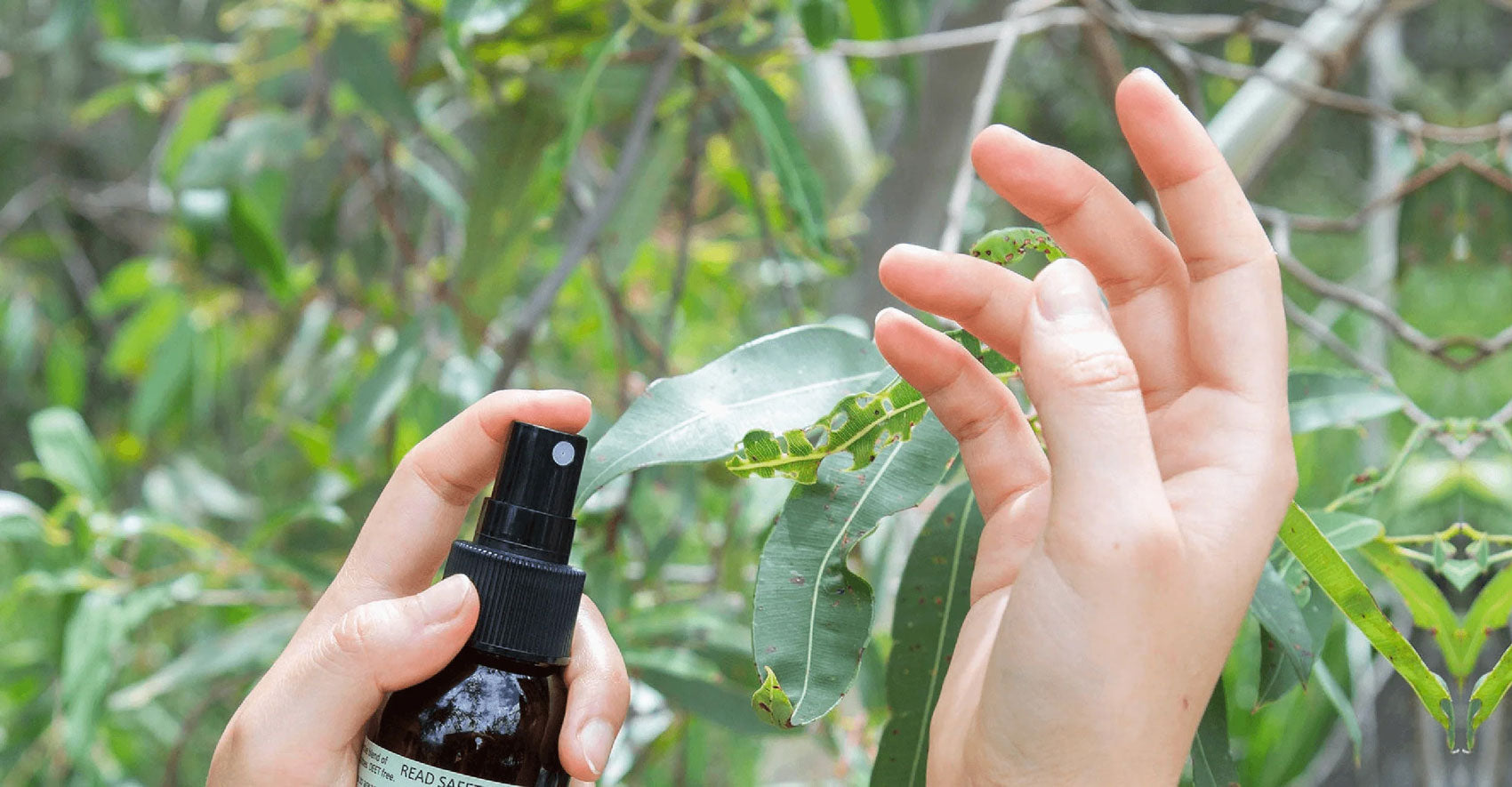
Discovering the Global Demand for Australian Essential Oils
Australian Essential oils are making waves across the globe.
Their unique properties, derived from native Australian botanicals, have led to a surge in demand.
But what's behind this growing fascination with these distinct scents?
Well, it's not just about their delightful fragrances; Australian Essential oils offer a myriad of benefits that span various industries. Today we will be discussing the rise of Australian oils, in particular Lemon Myrtle and Anise Myrtle.
Table of Contents:
- The Rising Popularity of Australian Essential Oils
- Harnessing the Power of Native Australian Botanicals
- The Process Behind Extracting Essential Oils
- Supporting Local with Australian Farmers
- Navigating International Standards for Essential Oils
- Combatting Copycats in the Industry
- The Future Potential of Australian Essential Oils
- FAQs in Relation to Australian Essential Oils
- Conclusion
The Rising Popularity of Australian Essential Oils

Essential oils have been a part of human life for centuries, their therapeutic and medicinal properties making them indispensable. Demand for essential oils has experienced a dramatic increase in recent years. According to a survey conducted back in 2017, around 11% of Australians were found using essential oils specifically for health-related purposes.
This isn't just limited within Australia's borders but extends globally as well. North America is one such region that accounts for about 40% of Australia's total exports, while Europe stands at half.
Lemon Myrtle - A Versatile Essential Oil
Australia houses some unique botanicals which produce distinctive scents when converted into Australian essential oils. One such example is Lemon Myrtle; known widely not only because it smells heavenly but also due to its antimicrobial properties.
- It has extensive uses across various sectors ranging from the food industry all the way to cosmetics manufacturing.
- The lemon myrtle plant thrives naturally under subtropical rainforests located along the coastal Queensland and Northern NSW regions, thus providing us with this preferred Australian essential oil on a consistent basis throughout the year.
Anise Myrtle - A Distinctive Choice
For a fresh yet effective antibacterial solution, Anise Myrtle is an ideal go-to option, especially for those involved within the cleaning product formulations sector.
Harnessing the Power of Native Australian Botanicals

With a rich array of unique native plants, Australia is an essential oil powerhouse. The distinctive scents and myriad uses of oils such as eucalyptus oil, tea tree oil, lavender oil, kunzea oil, cedarwood oil, and Australian sandalwood have made them highly sought after across industries globally.
Lemon Myrtle - A Versatile Essential Oil
The gorgeous scent that Lemon Myrtle brings forth cannot be ignored when discussing popular Australian essential oils. But it's not just about its pleasant aroma; there's more than meets the nose here.
- This native plant offers antimicrobial properties, making it a preferred choice for various sectors from food preservation, cleaning products to cosmetics formulation.
- A steam distillation process yields potent extracts used as flavorings or fragrances in commercial applications thanks to its high concentration levels, in particular of citral.
Anise Myrtle - A Distinctive Choice
In recent years, manufacturers have shown increasing interest towards Anise Myrtle due largely to its distinct aromatic profile, which resembles star anise but softer.
The Process Behind Extracting Essential Oils
Have you ever wondered how the highly concentrated essence of Australian native plants like Lemon Myrtle and Anise Myrtle is captured in essential oils? The answer lies in a process called steam distillation. It's an intricate, yet fascinating procedure that ensures we get to enjoy these distinctive scents.
Let's delve into this method which plays a crucial role not only in extracting plant material but also preserving their inherent anti-inflammatory properties and soothing qualities.
A Deeper Dive Into Steam Distillation
To truly appreciate the value of your preferred Australian essential oil, it helps to understand what goes on behind the scenes during extraction. So where do we start?
In simple terms, steam distillation involves heating up raw plant materials with water vapor under high pressure. This causes cells within the plants to break open and release their precious volatile compounds - essentially creating an aromatic cloud full of potential.
This blend then travels through cooling tubes where it transforms back into liquid form - collecting at its journey's end inside a vessel known as an essencier or separator.
Sustainability: A Core Principle In Extraction Processes
We can't talk about producing top-quality Australian essential oils without addressing sustainability issues surrounding production processes such as steam distillation. But why does this matter?
Studies have shown that compared with other methods like cold pressing or solvent extraction, steam distillation uses less energy while yielding more product per unit weight of raw botanicals used.
This means our favorite Aussie offerings are produced efficiently without causing undue strain on natural resources - mirroring responsible farming practices adopted by local farmers growing these indigenous species for commercial purposes.
Dilution: A Crucial Step in Safe Usage
A common error made by users involves applying pure essential oils directly onto the skin without first diluting them in a carrier oil. Carrier oils such as jojoba or almond serve as vehicles that help distribute the potent properties safely across your skin while reducing potential irritation from direct contact with undiluted essentials.
Ingesting these distinctive scents can also be harmful if consumed in their raw form; hence they should always be diluted under expert guidance before consumption.
Supporting Local with Australian Farmers

The decision to incorporate Australian essential oils into your product line isn't just about enhancing the quality and authenticity of your offerings. It's a strategic move that significantly bolsters local farmers who are dedicated to cultivating these native plants in an environmentally friendly manner.
Australian growers, especially those spread across New South Wales, have perfected their craft over generations. They cultivate unique botanicals like Lemon Myrtle, Anise Myrtle, and Riberry which not only serve as raw materials for our popular oils but also form the lifeblood of many rural communities.
Exports of natural oils from Australia account for more than 90% of the country's total production, underscoring the importance of international demand to sustain its farming sector. This highlights how crucial international demand is for sustaining our farming sector. According to data from the Department of Agriculture, exports contribute substantially towards supporting regional economies by creating jobs and fueling development initiatives at a grassroots level.
Sustainable Farming Practices
Our Aussie cultivators aren't simply growing these crops; they're doing so responsibly while showing utmost respect for Mother Nature. Sustainable farming practices employed by them ensure high-quality plant material without compromising on environmental integrity or resource availability.
This involves strategies such as crop rotation methods, organic fertilization techniques among others aimed at preserving biodiversity and maintaining ecological balance - all contributing towards healthier ecosystems capable of producing robust crops year after year.
Fair Trade Principles: More Than Just A Buzzword Here.
Beyond sustainability lies another important facet - fair trade principles. When you choose Australian essential oils for your product lineup, you indirectly endorse ethical trading standards ensuring adequate compensation for hardworking farmers while discouraging exploitative labor practices. Fairtrade Australia outlines several guidelines aiming at achieving equitable commerce within agricultural sectors including ours...
- Your Choice Makes A Difference:
In conclusion, choosing authentic Australian essential oils isn't merely about adding value or distinctive scents. It's about making a difference where it matters most: supporting local communities while upholding environmental stewardship. So why
Choosing Australian essential oils isn't just a quality boost for your products, it's an eco-conscious choice that supports local farmers and promotes sustainable farming practices. Plus, you're endorsing fair trade principles - now that's making scents of responsibility.
Navigating International Standards for Essential Oils
As the global demand for Australian essential oils continues to rise, it's crucial to understand the international standards that govern their importation. Ensuring product safety and environmental sustainability is key to adhering to international standards for essential oils.
In essence, staying abreast with legislative requirements and maintaining compliance isn't just a matter of legality - it can directly impact your business' market reach and bottom line.
Maintaining Ethical Practices
In addition to legal considerations when importing natural products like Lemon Myrtle oil or Anise Myrtle oil rich in antimicrobial properties sourced sustainably from local farmers across New South Wales, ethical guidelines must be observed.
It's important for businesses dealing with highly concentrated plant material, to adhere strictly to protocols set by Human Research Ethics Committees.
These committees call upon rigorous testing procedures ensuring any potential health risks associated with these distinctive scents are mitigated effectively.
The adherence towards both regulatory compliances alongside internal Quality Assurance practices will ultimately lead toward establishing a trustworthy reputation amidst growing competition while simultaneously catering to increasing interest coming forth from Asian markets alongside ongoing demands in North America & Europe.
For businesses dealing in Australian essential oils, navigating international standards and ethical practices isn't just about legality. It's a key factor affecting market reach and profitability. Compliance with EU REACH regulations, maintaining sustainable sourcing methods, and rigorous testing can build trust amidst rising competition.
Combatting Copycats in the Industry
The essential oils industry is not without its share of challenges. One such hurdle that has been highlighted by Landline, an Australian agricultural television program, involves counterfeit products claiming to be authentic Australian essential oils.
In essence, it's a battle between authenticity and mass-produced alternatives which can have far-reaching implications for both producers and consumers alike.
Distinguishing Genuine from Fake Products
Identifying real versus fake isn't always straightforward when it comes to essential oils. Authenticity goes beyond just looking at 'made in Australia' labels; one needs to delve deeper into details like botanical name, extraction method used, plant part utilized for oil production as well as batch number.
Certification marks are another indicator worth noting. Certifications like Certified Organic or ACO (Australian Certified Organic) ensure stringent standards during cultivation and processing stages were met - offering further assurance about product quality.
Safeguarding Authentic Producers
Purchasing directly from trusted suppliers or manufacturers offers dual benefits: you get assured quality while supporting those who invest time & resources into sustainable farming practices over low-quality mass-production methods.
Beyond this direct approach though lies potential on a larger scale - advocating stricter regulations against false labeling could help combat copycat products more effectively. This would necessitate collaboration among regulatory bodies worldwide but could pave the way towards greater transparency within the industry overall.
The Future Potential of Australian Essential Oils

As we witness the increasing demand for natural products, it's clear that a promising future awaits Australian essential oils. The industry has been progressing steadily and this trend looks set to continue.
One key driver propelling this growth is the surging interest from Asian markets. With their expanding middle class and heightened health consciousness, countries such as China, Japan, and South Korea are gravitating towards high-quality natural offerings like Australian essential oils.
Rising Demand in North America and Europe
Apart from Asia's burgeoning market, there remains strong consumption across North America and Europe. These regions have consistently shown preference for distinctive scents offered by our preferred Australian essential oil range.
This sustained appeal can be credited not only to the exclusive benefits provided by top essential oils but also due to sustainable farming practices employed by dedicated local farmers - a feature highly valued among eco-conscious consumers worldwide.
Australian Native Plants: A Unique Offering
The distinctiveness brought forth through plants like Lemon Myrtle or Anise Myrtle sets apart Australian essentials on global platforms. They possess rare characteristics making them attractive options for manufacturers spanning diverse industries including the food & beverage sector or personal care product lines.
Besides offering gorgeous scent profiles, they come packed with beneficial properties such as antimicrobial effects which add further value when incorporated into different end-use applications ranging from cleaning supplies through cosmetics up until culinary delights.
FAQs in Relation to Australian Essential Oils
What essential oils are native to Australia?
Eucalyptus, lemon myrtle, anise myrtle, tea tree, lavender, kunzea, cedarwood, and Australian sandalwood are among the essential oils native to Australia.
Which country is famous for essential oils?
Australia is renowned globally for its unique and beneficial essential oils derived from indigenous plants.
What are the 5 best essential oils?
The top five include Lavender for relaxation, Peppermint for an energy boost, Tea Tree for skin health, Eucalyptus for respiratory relief, and Lemon Myrtle as a natural antimicrobial agent.
Conclusion
When exploring the world of Australian Essential oils, what's evident is the rising global popularity and unique benefits derived from native botanicals like Lemon Myrtle and Anise Myrtle.
The careful extraction process that preserves their potent properties, not to mention safety measures, emphasizing responsible use to maximize these oils' potential without harm.
A nod to local farmers who cultivate these plants sustainably to create these popular oils, reminds us of the importance of supporting homegrown industries.
Navigating international standards and combatting copycats in the industry are challenges faced by producers, but they're not insurmountable with informed consumers and brands on board.
Looking ahead, it's clear that Australian Essential oils have an exciting future filled with potential growth across various markets worldwide.


